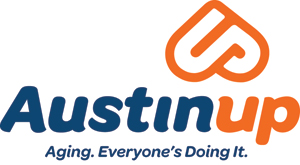
As older workers approach retirement, employers risk losing their greatest asset. The knowledge that older workers have accumulated throughout their careers is valuable. If companies don’t support interaction and communication between younger and older generations, that precious information will be lost.
While many companies choose to hire younger workers due to their eagerness to learn and fresh perspective, older workers are being left on the sidelines, along with their strengths and organizational value:
- Loyalty – As younger generations begin to dip their toes into the workforce, many will pursue a variety of different companies, often in quick succession –unlike older generations who find causes (and employers) that they truly believe in, investing in their success. This is a much different approach than investing in personal success.
- Strong network – Older workers tend to have a strong network of professional connections. Not only is this a valuable resource for the company, it is especially useful when shared with their younger coworkers.
- Focus – Older workers are often counted on to produce attentive and detail-oriented work that is on-time and with few errors. These skills and their importance are necessary to pass on.
- Communication – Most older workers are comfortable with face-to-face communication. This is valuable to prevent vital information from getting lost in translation.
- Experience – While younger workers often bring eagerness and fresh ideas into the workplace, older workers bring experience, wisdom and perspective. These qualities can be easily dismissed. “But as history shows, progress without perspective can lead us down a perilous road,” says Nicole Cavazos, a contributor to the ZipRecruiter blog.
“Over the next ten years, we’ll see the greatest transfer of knowledge in the history of the world,” says Chip Espinoza, director of organizational psychology for the School of Professional Studies at Concordia University Irvine. “This is tacit knowledge that is experiential. It’s not written down. It’s transferred through relationships. If that knowledge walks out the door when baby boomers retire, companies will lose a big competitive advantage.”
What is necessary in order to continue this sharing of knowledge is nurturing the relationship between generations. According to this Service Futures article, “One of the ways to manage the barriers between generations is to “…create space for knowledge sharing. Let the older and more experienced generations of employees act as career mentors for the younger generations, while at the same time creating an environment where younger generations can inspire the older workers with new innovative solutions and ways of working.”
“Every day, about 10,000 baby boomers retire,” according to Diversity Woman’s, Kimberly Olson. “As they depart, and as millennials continue to arrive and step into leadership roles, companies are undergoing an unprecedented shift.”
The urgency to forge close relationships between older and younger generations is more important now than ever.
(This post was written by guest blogger, Jillian Jacobs.)
